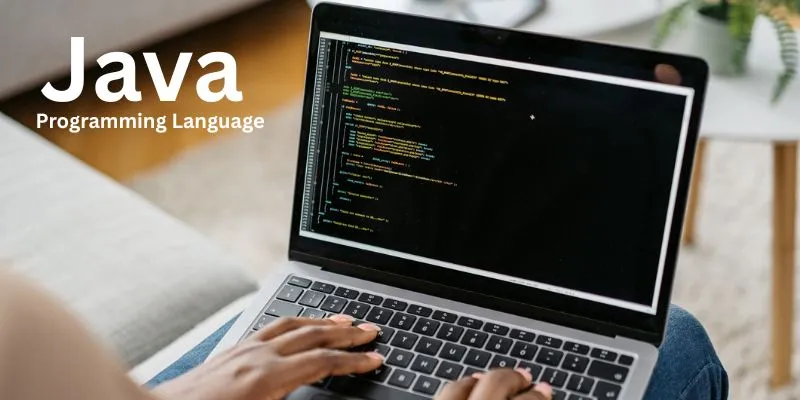
Java is a programming language known for its strong typing and object-oriented approach. It is used to create reliable, scalable, and cross-platform applications. To get started with Java, it is important to understand data types and variables, as these basics help you write clear code and manage memory well. A variable in Java is a name for a spot in memory where you store a value. The data type tells you what kind of value a variable can hold. Picking the right data type helps you write better and more reliable code. If you want to learn more and practice these skills, a Java Course in Gurgaon at FITA Academy can guide you through variables, data types, and tips for writing clean code.
What Are Variables in Java?
Java variables are used to store information that can change during program execution. Every variable in Java must be declared with a specific data type before it can be used. This ensures type safety and prevents runtime errors.
- Local Variables:declared within a block, a constructor, or a method, and are only accessible within that block. They are created when the block is executed and destroyed when the block ends.
- Instance Variables: declared outside of any methods but within a class, constructor, or block. Each object of the class has its own copy of the instance variables.
- Static Variables (Class Variables): Declared using the static keyword. They belong to the class rather than any individual object, meaning all objects share the same variable.
- Final Variables: Declared with the final keyword, which means their value cannot be changed once initialized.
Proper use of variables is essential to avoid memory leaks, improve code readability, and ensure maintainability. Enrolling in a Java Course in Delhi can help you learn best practices for variable management and develop efficient, robust Java programs.
Primitive Data Types in Java
Java provides eight primitive data types, which are predefined by the language and serve as the foundation for all other data structures:
- byte: 8-bit integer, useful for saving memory in large arrays.
- short: 16-bit integer, slightly larger than a byte.
- int: 32-bit integer, the most commonly used integer type.
- long is a 64-bit integer for very large numbers.
- float: 32-bit single-precision decimal value.
- double: 64-bit double-precision decimal value, used for accurate calculations.
- char: 16-bit Unicode character, used to store single characters.
- boolean: Represents true or false, commonly used in conditional statements and logic control.
Primitive types are fast and memory-efficient, making them ideal for high-performance applications.
Reference (Non-Primitive) Data Types
In addition to primitive types, Java also supports reference data types, which include objects, arrays, and classes. Unlike primitives, reference types store the memory address of the object rather than the actual value. A Java Course in Cochin can help you understand how to work with objects, arrays, and other reference types effectively in Java.
- Objects: Represent instances of classes and can contain multiple fields and methods. For example, a String object stores text and provides methods for manipulation.
- Arrays: Allow a single variable to hold several values of the same type, making data handling efficient.
- Interfaces and Enums: Specialized reference types that help organize and structure code in a readable and maintainable way.
Type Casting and Conversion
Sometimes, you may need to convert one data type into another. Java supports two types of casting:
- Implicit Casting (Type Promotion): Automatically converts a smaller data type to a larger one. For example, an int can be automatically promoted to a long.
- Explain requires manually converting data types using parentheses.
Type casting is important when performing arithmetic operations, reading input, or integrating different data structures. Mastering these techniques ensures safe, efficient data conversions in your Java programs and can be learned effectively through a Java Course in Dindigul.
The Best Ways to Use Data Types and Variables
Following best practices ensures that your Java programs are efficient, maintainable, and less prone to errors. Let’s expand on some key recommendations:
Choose the Right Data Type:
Selecting an appropriate data type helps optimize memory usage and improve performance. For example, use byte or short for smaller numbers and int or long if large numbers are required. Choosing the correct type prevents unnecessary memory consumption and improves program efficiency.
Use Meaningful Variable Names:
Code is easier to read when you use descriptive variable names and easier to maintain. For instance, instead of naming a variable a’, use ’employeeCount’ or ‘totalPrice’.
Initialize Variables Properly:
Always assign an initial value to your variables before using them. Uninitialised variables can lead to unexpected results or runtime errors. Proper initialisation ensures that your code behaves predictably.
Minimise Variable Scope:
Declare variables in the smallest possible scope. Variables declared closer to where they are used improve readability, reduce memory usage, and prevent accidental modification from other parts of the code.
Avoid Magic Numbers:
Hard-coded numbers in your code can make it confusing and error-prone. Instead, use constants (final) or enums for values that are reused or represent a fixed set of options. This makes your code easier to update and maintain.
Understanding data types and variables in Java is fundamental for writing efficient, maintainable, and high-performance programs. Proper use of variables, selecting the right data types, following type casting rules, and adhering to best practices not only prevents errors but also improves code readability and memory management. If you want clear guidance and practical experience, joining a Java Course in Kanchipuram can really help. The course covers topics like data types, managing variables, type casting, and good coding habits, so you gain the skills to create strong and scalable Java applications.
